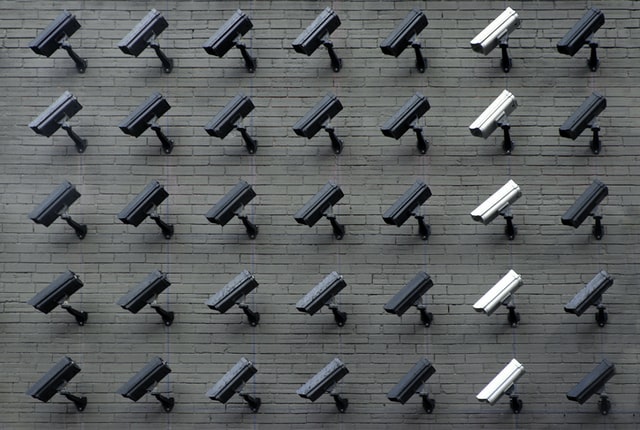More than half of the Dutch are positive about facial recognition. Over three-quarters think that facial recognition is an acceptable tool for police surveillance, or to track suspects. However, emotion detection is still a bridge too far for most. This is evident from research conducted by GetApp Netherlands, a subsidiary of market researcher Gartner. In June, the company asked 1,014 Dutch people between the ages of 18 and 85 from various sectors about the use of and their opinions about facial recognition.

The survey clearly shows that the Dutch are not unsympathetic to facial recognition. Six in ten respondents (62 percent) are positive about cameras with facial recognition software. In fact, 15 percent find it very acceptable to hang such cameras. A small group of 7 percent do not like facial recognition and find it unacceptable.
In several applications, people find it no problem to use facial recognition. These include passport control at Schiphol Airport (85 percent), or police surveillance (80 percent). Just under half (43 percent) feel that solving a crime outweighs any invasion of their privacy.
Three-quarters of those surveyed say they see the benefit of facial recognition technology when they want to unlock their smartphone. Furthermore, 63 percent are positive about using a facial scan to log into their bank's app or when making online payments.
Cameras with facial recognition are not always accepted. Two-thirds of Dutch people (67 percent) do not want facial recognition technology used to serve personalized ads. Most (59 percent) also find emotion detection unacceptable. Facial recognition technology is then used in combination with artificial intelligence (AI) to determine personality traits of job applicants, for example.
Whether or not to grant access to buildings or concerts using facial recognition is a thorny issue for many. At government buildings or secure institutions such as a nuclear power plant, most Dutch people have no problem with cameras with facial recognition being used there to let people in or not. At the office or sports club, on the other hand, they have more trouble with it.
When it comes to controlling access to events or sports games, it's about fifty-fifty. 48 percent of respondents say they would rather not see cameras with facial recognition, a group of 47 percent think this application is justified.
The survey shows that most Dutch people have no objections to the use of facial recognition cameras when it concerns their safety. Once facial recognition technology is used for consumption and marketing, acceptance is much lower.
The Autoriteit Persoonsgegevens thinks otherwise. The regulator emphasizes that cameras with facial recognition are in principle prohibited. In December 2020, the regulator warned a Jumbo store owner in Alphen aan den Rijn who wanted to hang security cameras with facial recognition to protect visitors and stop shoplifters. Monique Verdier, vice president of the AP, compared visitors to "walking bar codes.
This prohibition may be waived in two cases: if the data subject has given explicit permission to be recorded on camera, or if this technique is used for security and authentication purposes that serve a "compelling interest" (such as data center security).
There are concerns in the House of Representatives about the use of facial recognition software from the U.S.-based Clearview AI by the Dutch police. The FBI used this software to identify rioters who participated in the storming of the Capitol. In the US, the use of facial recognition is highly controversial.
The administration has always denied that the police in our country use Clearview AI's facial recognition technology. However, research based on internal data from Clearview showed that the National Police used this software between 51 and 100 times. Outgoing Minister for Legal Protection Sander Dekker must now explain to the House of Representatives what is going on.
"Can you answer again which public organizations have continued to use the controversial facial recognition software?", Lisa van Ginneken (D66) and Kauthar Bouchallikh (GroenLinks) want to know from Minister Dekker. He must also answer what steps he will take to ensure that the National Police cannot simply use Clearview AI's facial recognition technology.

